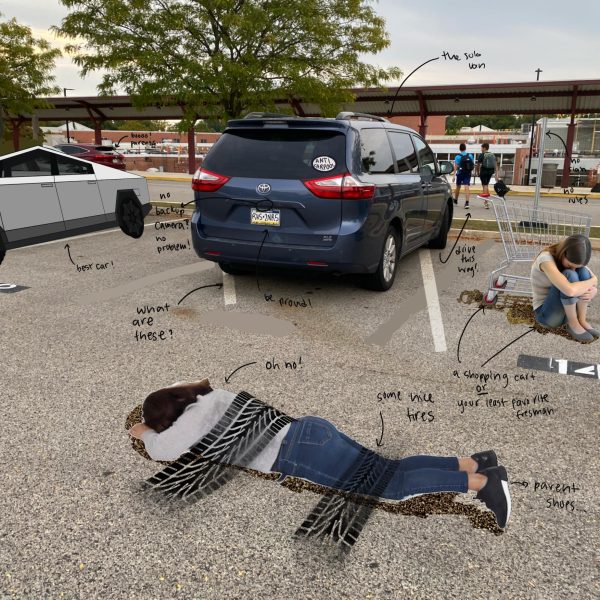December 25th: A Secular Holiday
December 21, 2017
Most devout Christians will probably tell you that Christmas celebrates the birth of Jesus Christ, the Son of God. For much of the population, however, Christmas is not a particularly religious affair. Take a look around town, and you will find that most Christmas decorations and traditions generally steer clear of Biblical reference: a gigantic Christmas tree at the mall, pictures with Santa, and stockings for sale. According to the Pew Research Center, 87% of Atheists and Agnostics celebrate Christmas in the United States. The numbers are just as surprising for other religious groups: 76% of Asian-American Buddhists, 73% of Hindus, and even 32% of Jews enjoy the holiday. So, is the celebration of Christmas religious or secular?
Until someone personally reveals information about their religious affiliation, it is often assumed that one is Christian. Even with a decline in practicing followers in recent years, a still significant 70% of American adults identified as Christian in 2015, according to another Pew survey. Of all 45 American presidents, none have identified with a religion other than Christianity. Many still assert that America is indeed a Christian nation.
We don’t have menorahs or other religious symbols placed so commonly throughout stores, malls, or schools, so why is it consciously acceptable to plaster public areas with mostly or only pine tree wreaths, mistletoes, and the classic Christmas tree? Why is there always a town lighting for the Christmas tree but not for other religious decorations? The answer is that to many Americans nowadays, Christmas does not carry much of a religious connotation and is only celebrated as a winter solstice holiday. Not every person who receives presents under the Christmas tree observes the religious tradition.
Christmas today has become a commercialized secular holiday. Children look forward to celebrating it not because they are excited to attend a church service but rather because they are giddy at thought of what presents they will be receiving. The once religious traditions of Santa Claus and tree decoration brought over by German immigrants today have lost their Biblical connection. In 2017, there is nothing religious about decorating an evergreen. Many Americans use their tree simply as decoration in their home for the holiday season. Nor does it make one less Christian if he or she does not purchase one.
In conclusion, you should not be confused by the offsetting numbers of people of other religious groups celebrating the birth of Jesus Christ. While the holiday used to entail religious meaning, today, Christmas is a day for people to gather and warmly exchange presents for loved ones, no matter their faith.






